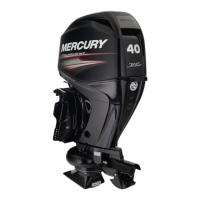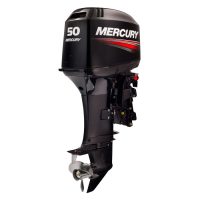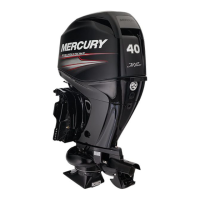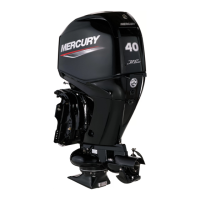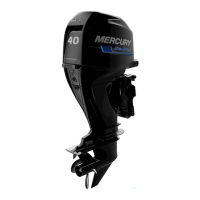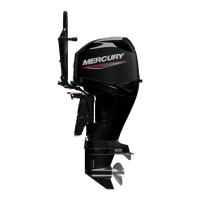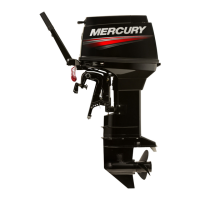GENERAL INFORMATION
90-857046R1 NOVEMBER 2001 Page 1C-5
Engine
DETONATION
Detonation in a 4-cycle engine resembles the “pinging” heard in an automobile engine. It
can be otherwise described as a tin-like “rattling” or “plinking” sound.
Detonation is an explosion of an unburned portion of the fuel/air charge after the spark plug
has fired. Detonation creates severe shock waves in the engine, and these shock waves
often find or create a weakness: The dome of a piston, cylinder head/gasket, piston rings
or piston ring lands, piston pin and bearings.
A few of the most common causes of detonation in a marine 4-cycle application are as
follows:
• Over-advanced ignition timing.
• Use of low octane gasoline.
• Propeller pitch too high (engine rpm below recommended maximum range).
• Lean fuel mixture at or near wide-open-throttle.
• Spark plugs (heat range too hot - incorrect reach - cross-firing).
• Inadequate engine cooling (deteriorated cooling system).
• Combustion chamber/piston deposits (result in higher compression ratio).
Detonation usually can be prevented if:
1. The engine is correctly set up.
2. Diligent maintenance is applied to combat the detonation causes.
51115
Damaged Piston Resulting from Detonation
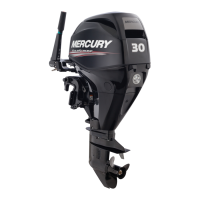
